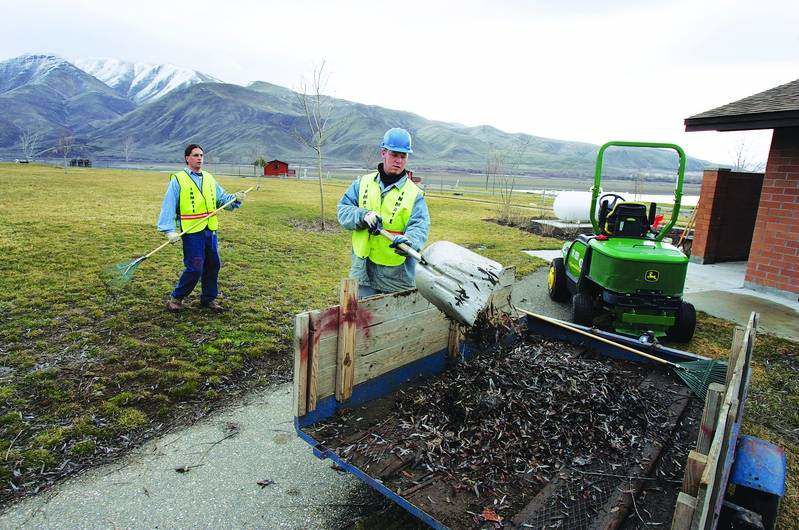Prison workers compete with locals for employment
Published 5:00 am Sunday, April 23, 2006

- Snake River Correctional Institution inmates Joe Combs, 27, right, and Scott Meier, 34, clean up leaves at Farewell Bend State Park, located between Ontario and Baker City.
At Farewell Bend State Park, located 20 miles north of Ontario on the bank of the Snake River, a sandwich board sign at the entrance flanked by restored covered wagons advertised an ”INMATE WORK CREW” in progress on a chilly Thursday morning last month.
The 10-man crew was spread out across the park, some putting up a new shelter, others remodeling a bathroom, all of them wearing neon-yellow vests with ”Inmate” printed on the back.
Inmate work crews are available for hire by local governments and private employers for a nominal fee – the Farewell Bend crew costs $300 a day – to do a variety of jobs, according to corrections officials. For charities and nonprofits, they usually work for free.
City and county officials praised the crews for saving money and beautifying the communities, but some residents said the inmates take what might otherwise be paying jobs.
Only minimum-security inmates with less than three years left on their sentence and no pending charges are eligible for the crews, under Department of Corrections rules, and sex offenders or inmates judged to be dangerous are automatically disqualified.
A single corrections officer, on this day 15-year veteran Jim Eastwood, monitors the crew and checks each inmate every half-hour. Eastwood, a friendly and massive Army veteran, said he sees himself as more of an overseer or foreman than guard.
”I’ve been here at the park a little over a year and I’ve never had a problem with the inmates,” Eastwood said. ”I’ve got guys begging to be here.”
Inmate crews also do work for private companies, a practice that some locals resent.
Kristin Connell, the manager of Hermiston temp agency Express Personnel Services, said she lost one of her biggest clients, a local landfill, when Two Rivers Correctional Institution came to town.
Connell said she thinks the prison was good for Umatilla as a whole, but the work crews hurt her bottom line.
”We did pretty good business with them,” said Connell, of the landfill. ”That did take away a lot of work.”
Central Oregon staffing agencies said they’re not worried about work crew competition.
”If they’re doing it better than we, then more power to them,” said Connie Druliner, owner of Express Personnel Services in Bend. ”If we aren’t doing our job for our client companies, we don’t deserve to have any business.”
In Boardman, a few miles away from Umatilla, the Potlach Corp. used a prison work crew to trim trees at its 17,000-acre hybrid poplar plantation for several years after the prison opened, according to company spokesman Mike Sullivan. The company switched to private crews after recent changes at the site. Restrictions on working hours and the tools inmates could use made the arrangement impractical.
”It wasn’t that the workers were incompetent or poor or anything like that. They did fine, but because of the differing needs of the farm as the trees grew, they just decided it was better to go with contract workers,” Sullivan said.
Washington State University Professor Greg Hooks said those examples, where cheap prison crews take up jobs that would otherwise go to paid workers, are one reason prisons have a much smaller economic impact than private employers.
But Umatilla and Ontario business leaders disagreed, saying the work crews could actually attract some businesses.
”I think that because we have the opportunity to offer the inmates as a labor force, that overcomes any of the negatives,” said Port of Umatilla General Manager Kim Puzey.






